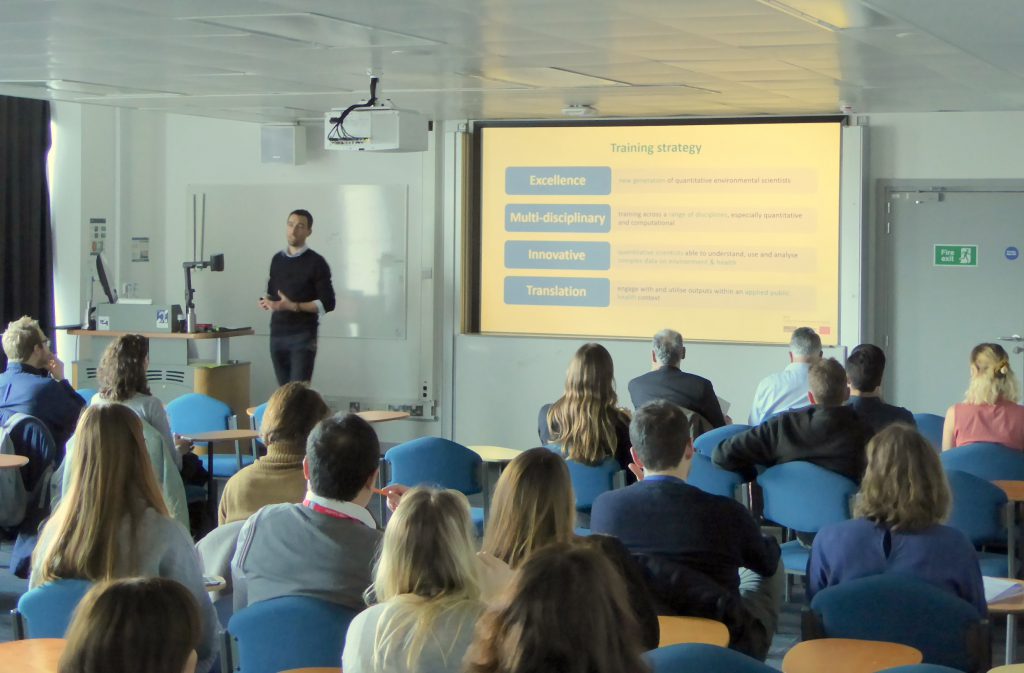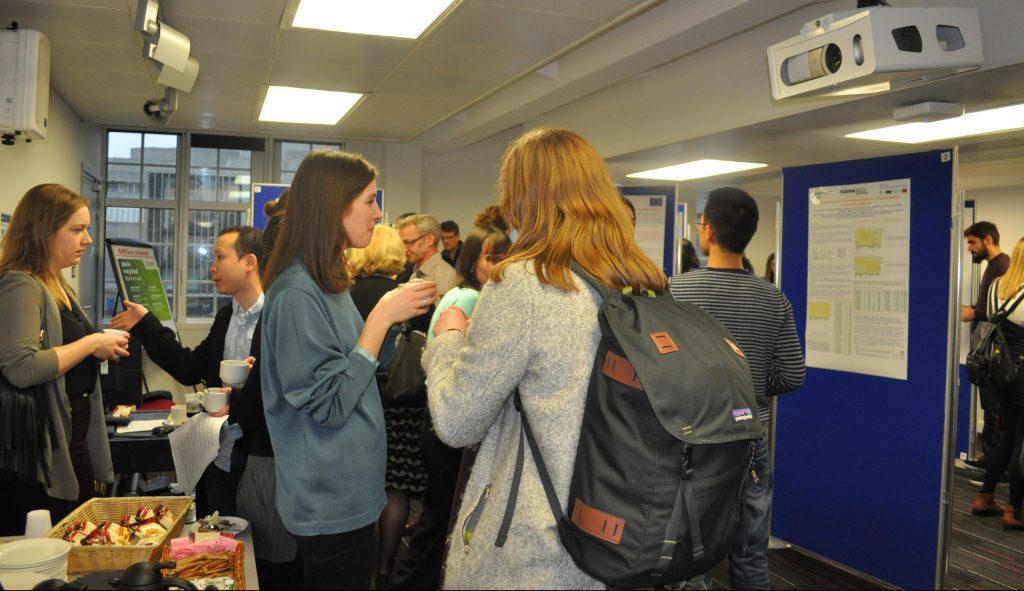
The Centre's training programme is critical to our overall mission. Our goal is to establish a high-quality training and career development environment to form quantitative environmental scientists at PhD, postdoctoral and early-career fellow stages.
Training activities are designed to equip the students and early career researchers with the multi-disciplinary skills required to take advantage of the rapidly developing technical and methodological landscape for research on environment and health. This involves training across a range of disciplines, especially those involving quantitative and computational sciences, providing the skills needed to analyse and understand the outputs of large-scale epidemiological, toxicological and omic analyses within an applied public health context and apply them to policy development.
Joint Academic Career Development Programme
Our training programme builds upon the successful experience gained over more than 10 years in the previous phases of the Centre. To broaden the scope of the training provided, take advantage of the expertise and training resources available over a wider group of partners and offer opportunities for our trainees to develop a broad collaborative and mentoring network, we decided to merge the training activities of the MRC Centre and the two collaborating NIHR HPRUs into a single integrated Joint Academic Career Development Programme.
Our students and early career researchers are provided with a bespoke training programme, alongside the high-quality programmes already offered at Imperial College London, Public Health England, King’s College London and MRC Toxicology Unit at the University of Cambridge, to ensure they are equipped with the right skills and experience to become first-class researchers and future leaders in their field.

The Joint Academic Career Development Programme, led by Dr Fred Piel and Dr Dimitris Evangelopoulos, supported by Joint Academic Career Development Committee, develops activities supporting the Centre students and early career researchers' academic progress, facilitate a broad training experience, organise academic events (e.g. annual postgraduate symposium to showcase student work) and bring the students’ perspective to the Centre management structures.
Joint Academic Career Development Committee
The Joint Academic Career Development Committee consists of representatives from each of the partners in the MRC Centre and the two HPRUs, and student and early career researcher representatives. Its role is to guide and support the development of a robust multidisciplinary programme for training the next generation of environmental health scientists affiliated with these units.
| Dr Frédéric Piel | ICL | MRC Centre and HPRUs Joint Academic Career Development Programme Director |
| Dr Dimitris Evangelopoulos | ICL | MRC Centre and HPRUs Joint Academic Career Development Programme Deputy Director |
| Ms Anastasia Ioakeimidou | ICL | MRC Centre Manager & HPRU in Chemical and Radiation Threats and Hazards |
| Ms Angela Lewis | ICL | MRC Centre Manager (ERG side) & HPRU in Environmental Exposures and Health |
| Kirsti Hornigold | UoC MRC Tox Unit | HPRU in Environmental Exposures and Health & HPRU in Chemical and Radiation Threats and Hazards |
| Dr Liz Ainsbury | UKHSA | HPRU in Chemical and Radiation Threats and Hazards |
| Dr Matthew Wright | UKHSA | HPRU in Environmental Exposures and Health |
| Dr Kerry Broom | UKHSA | HPRU in Environmental Exposures and Health & HPRU in Chemical and Radiation Threats and Hazards |
| Ms Ruthie Parsons | ICL | Researchers' Society representative |
| Irene Mbutu-Austin | KCL | PhD Student Representative |
Contact: Joint Academic Career Development Programme
To contact any of the members of the Joint Academic Career Development Programme Committee please follow the links above.
